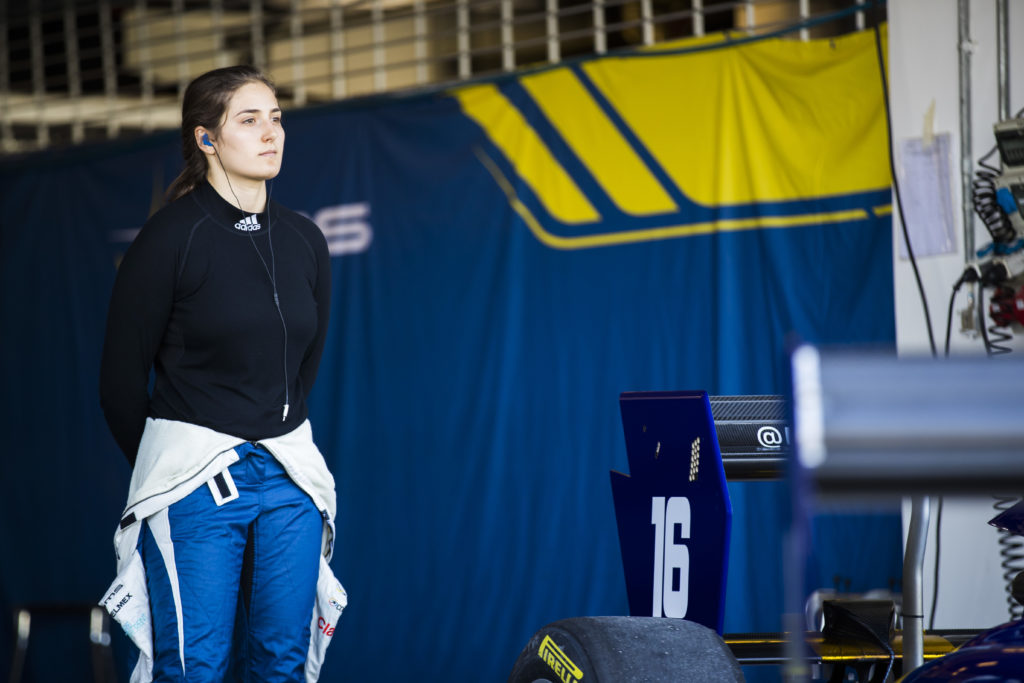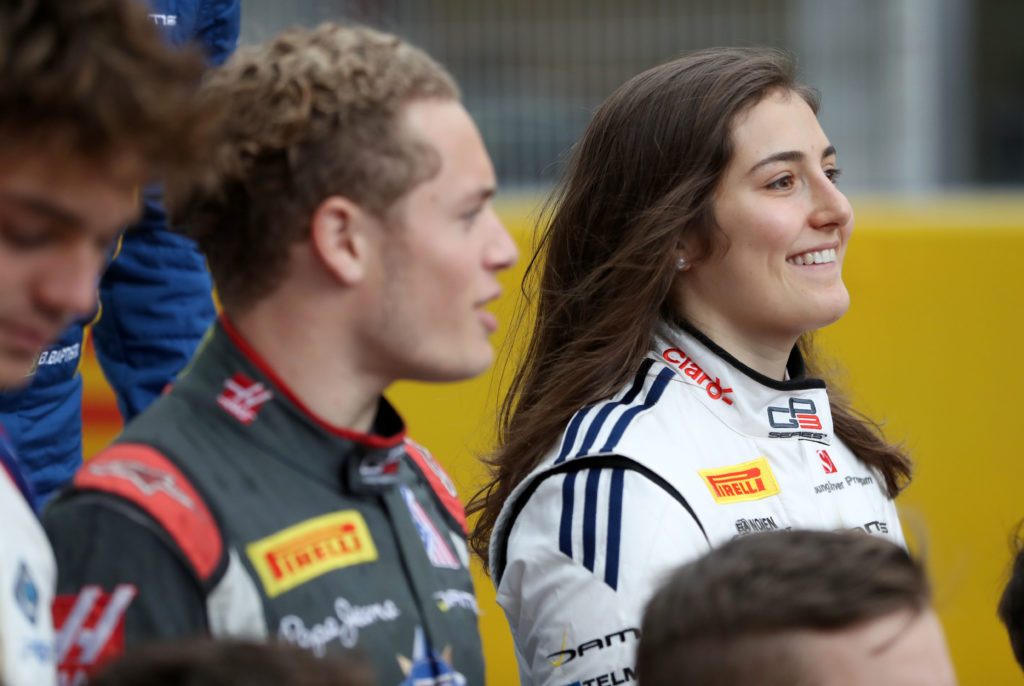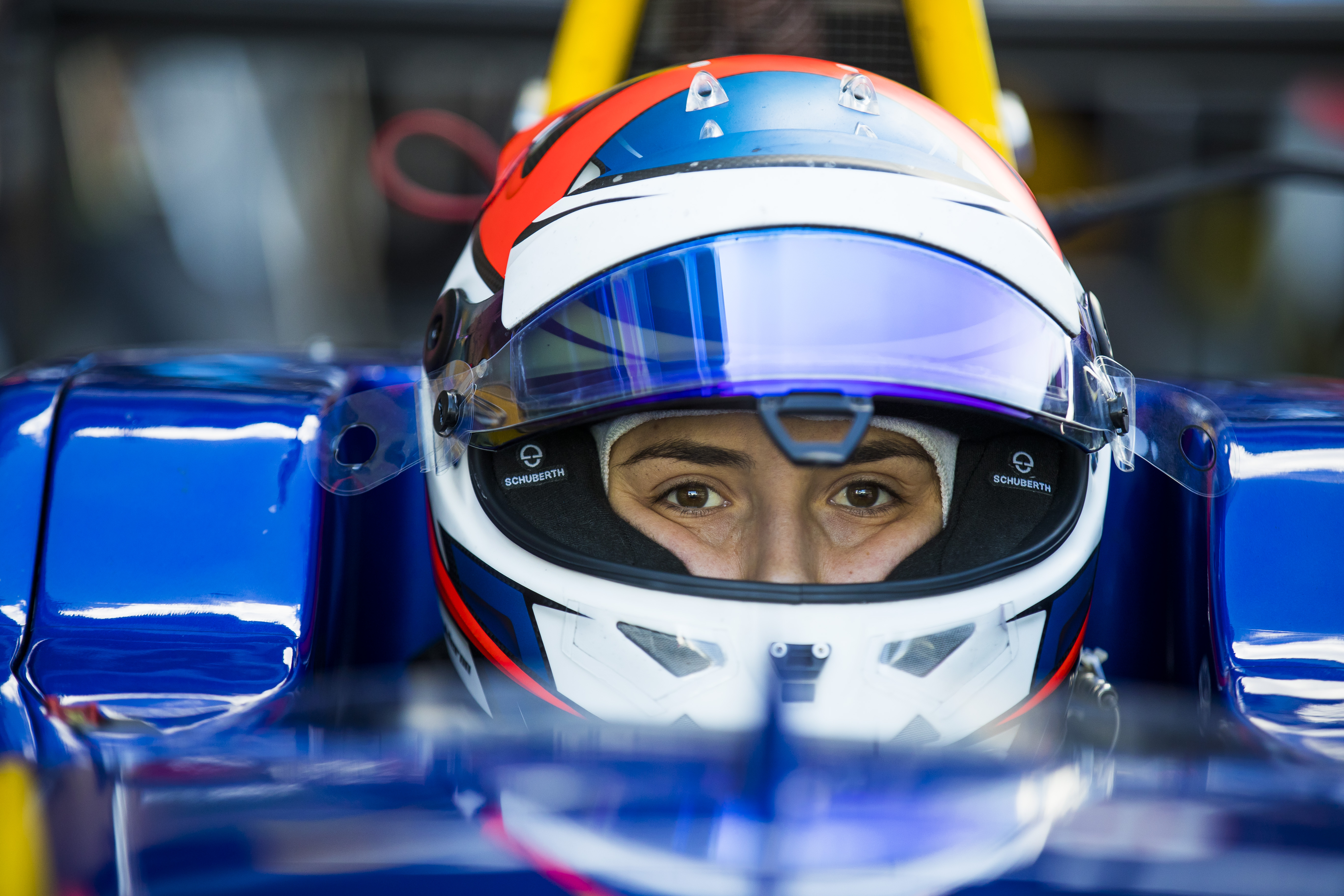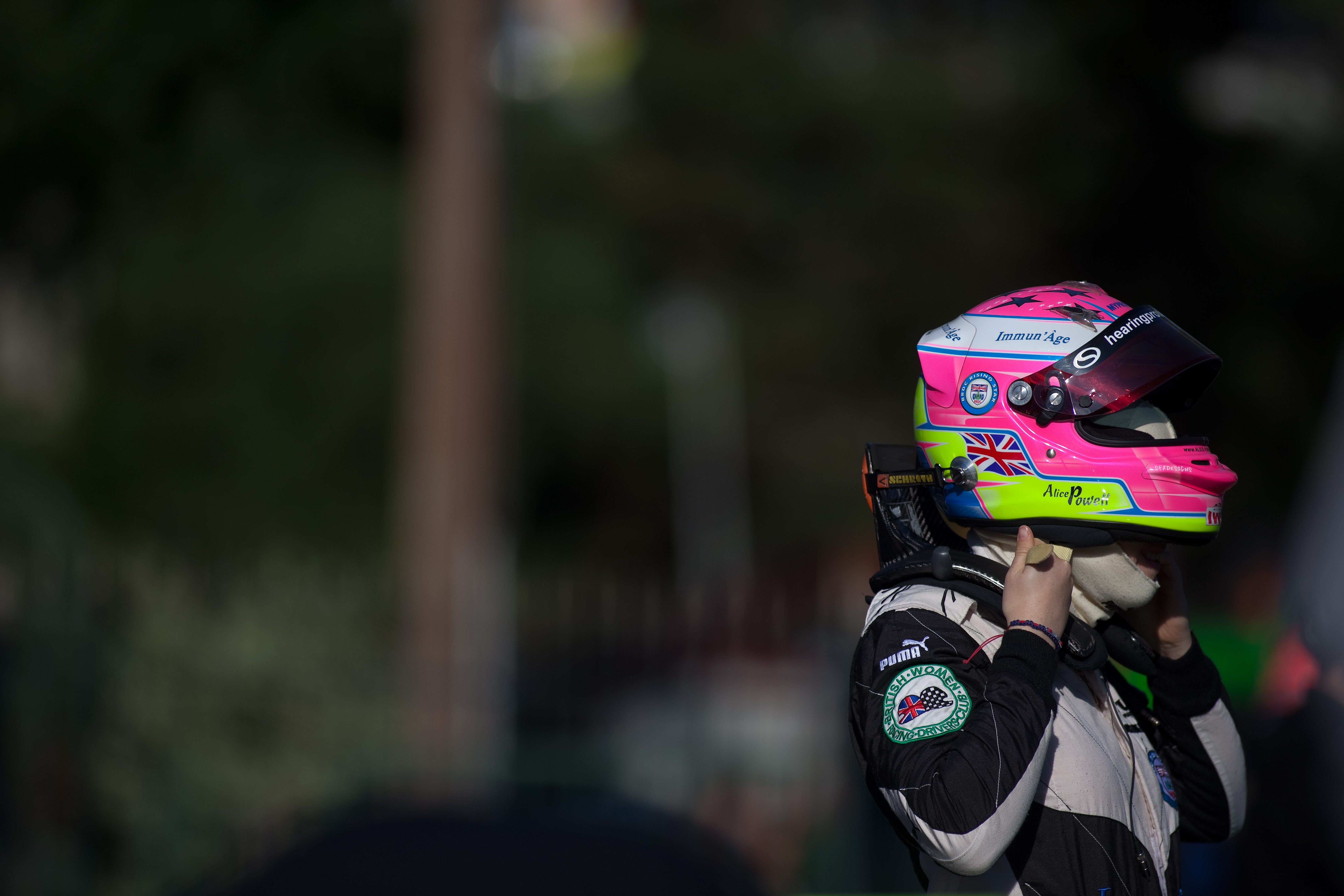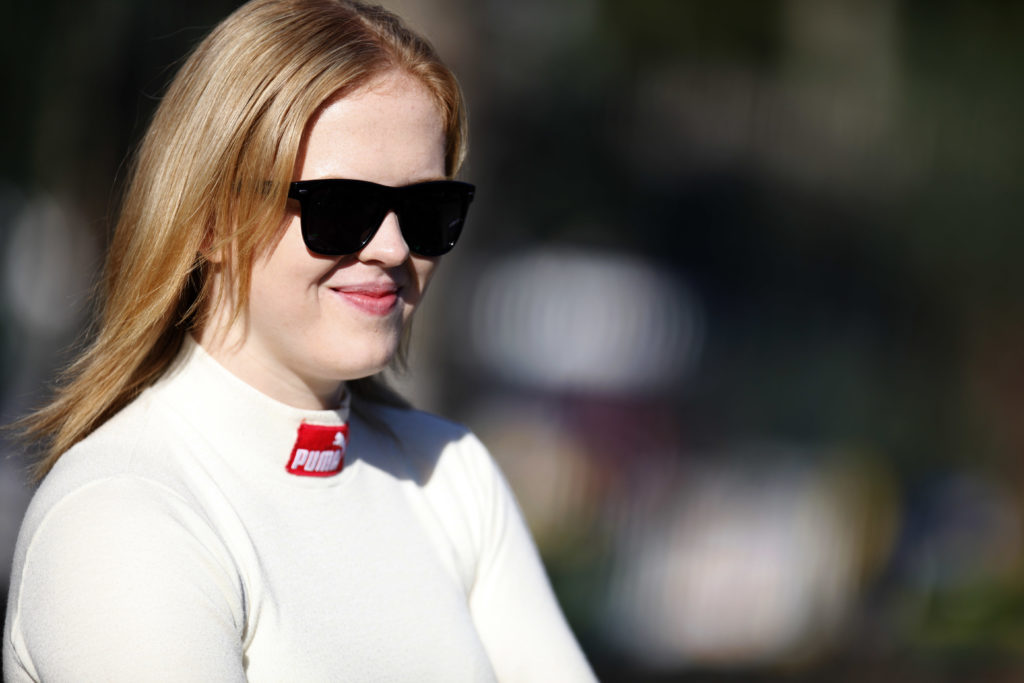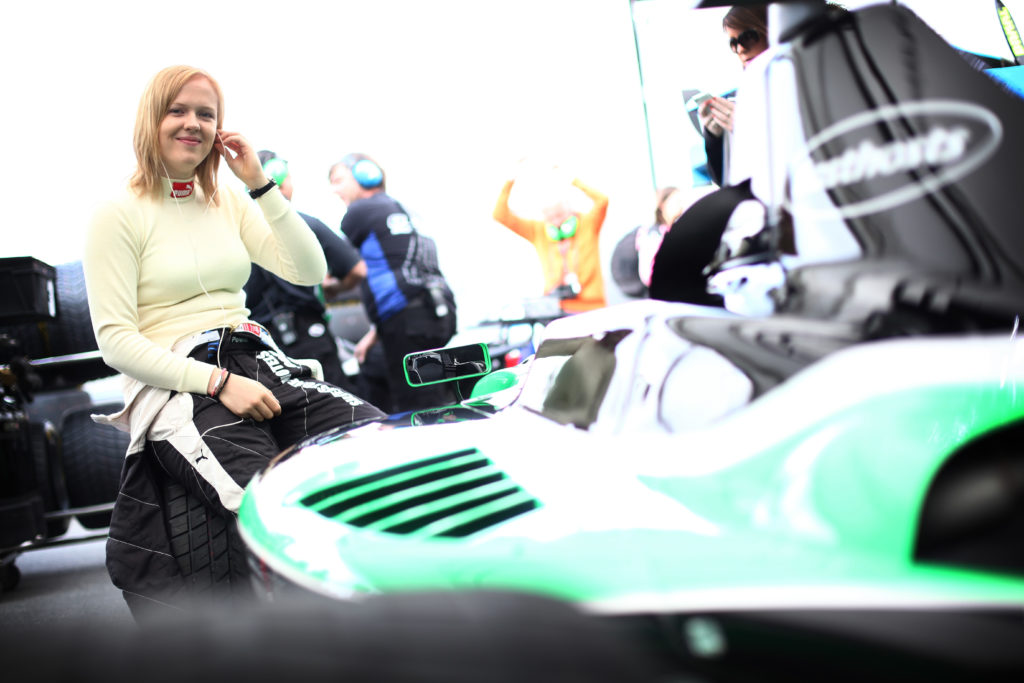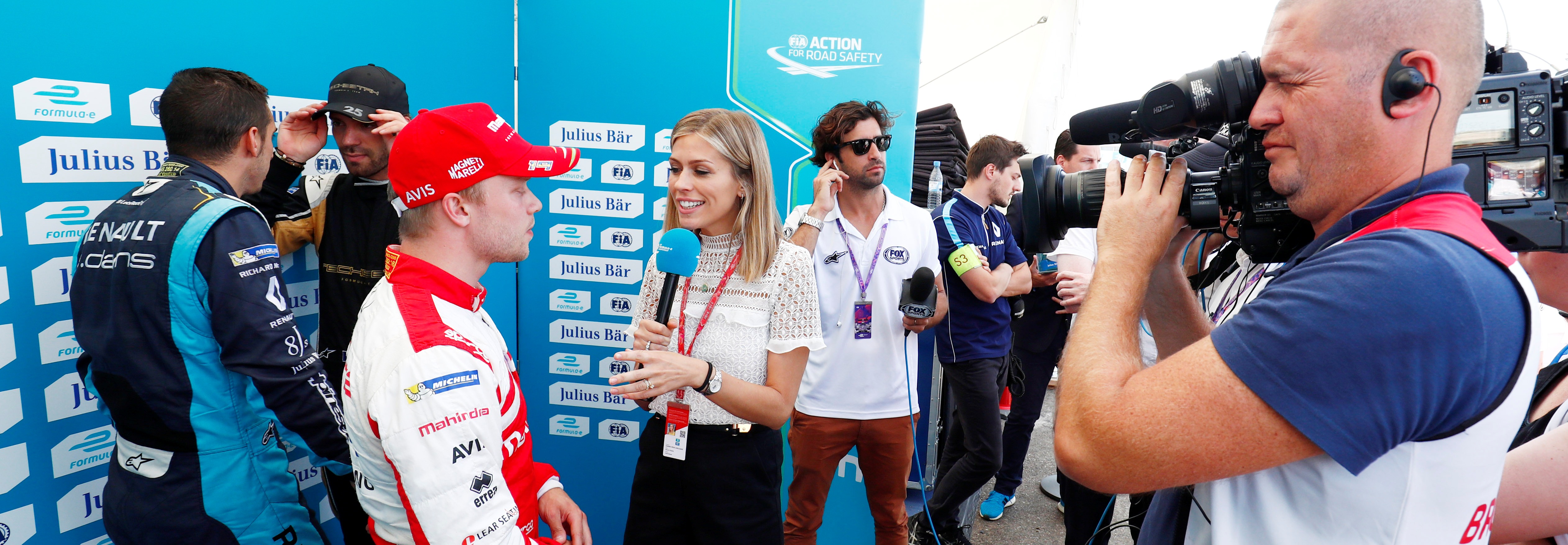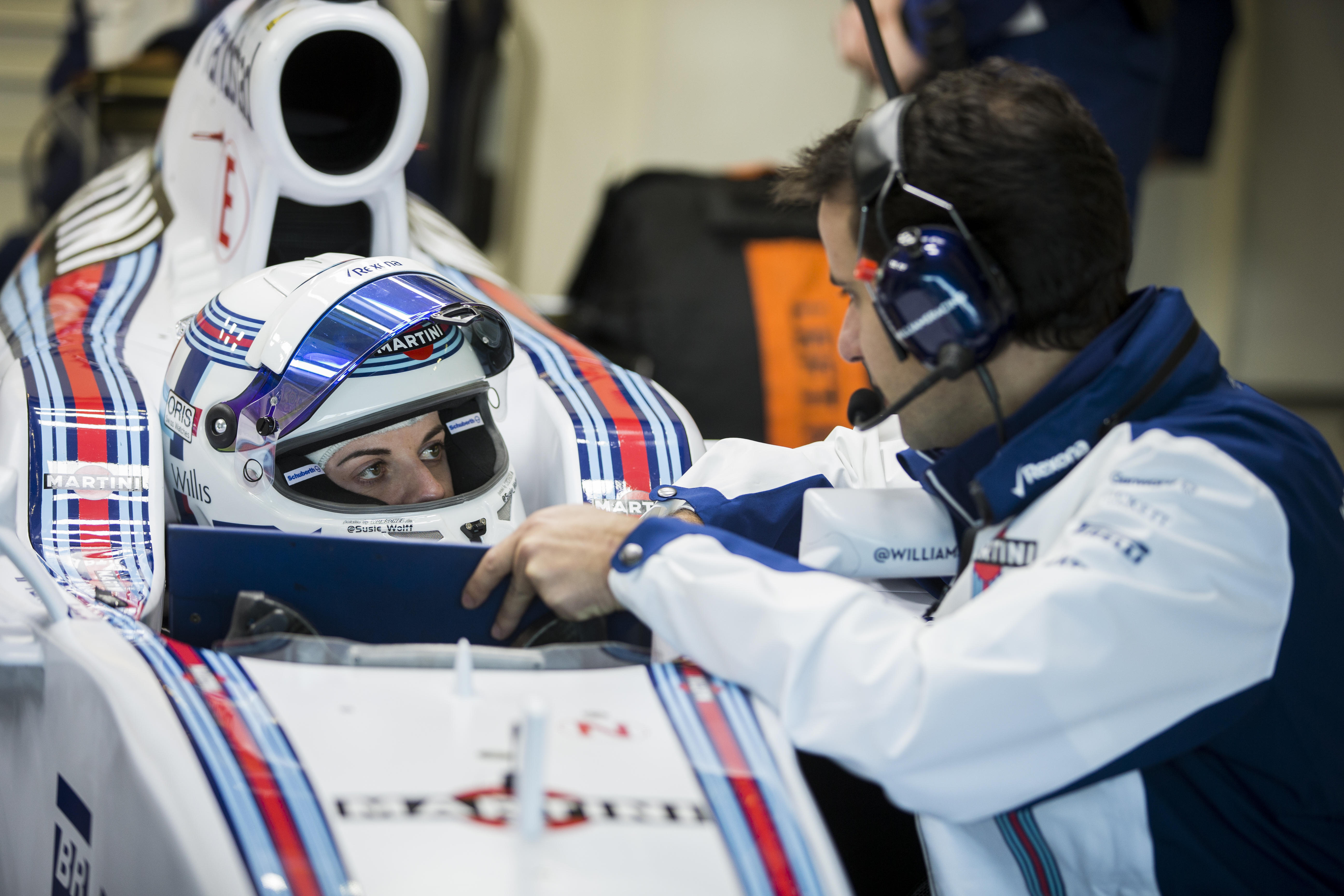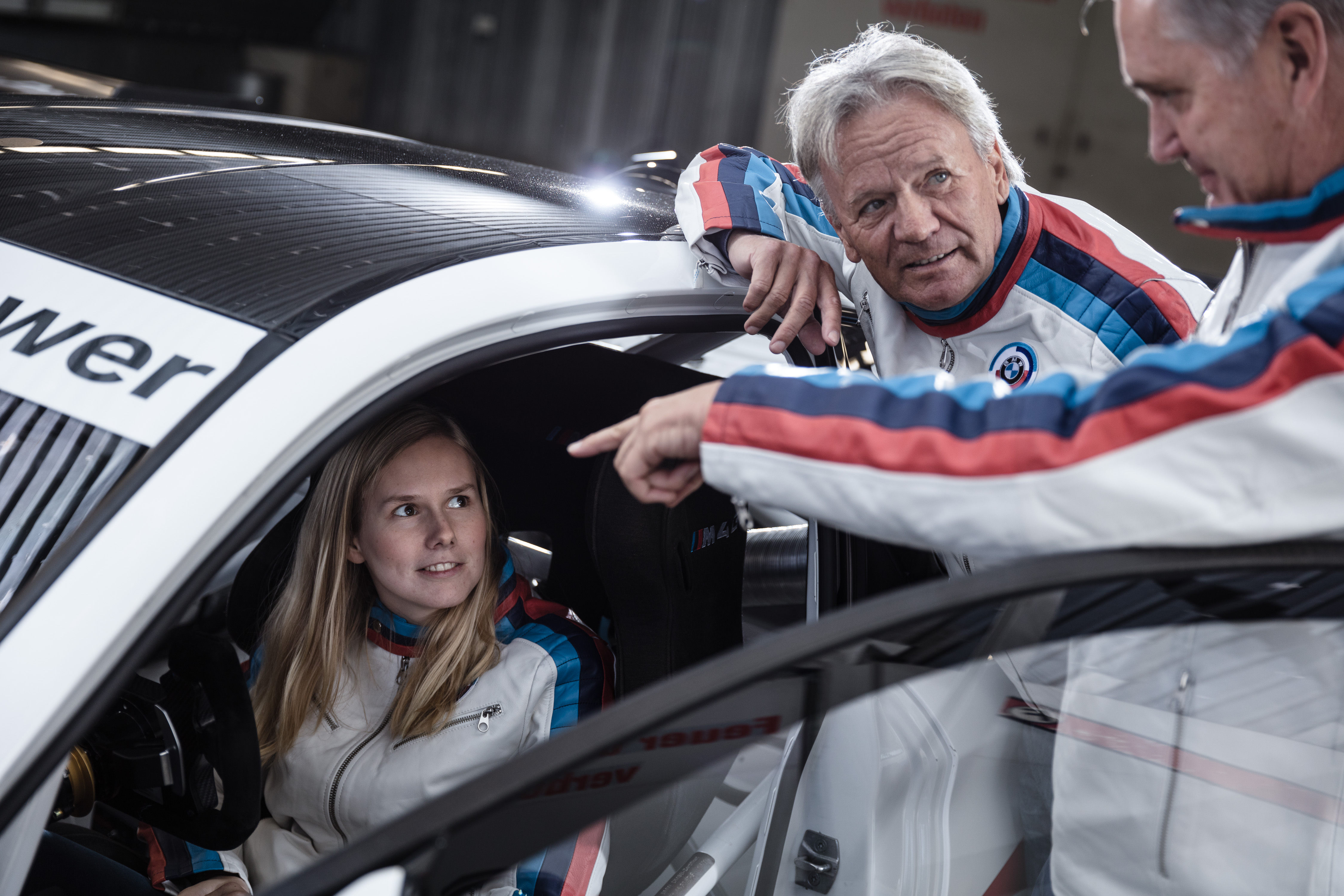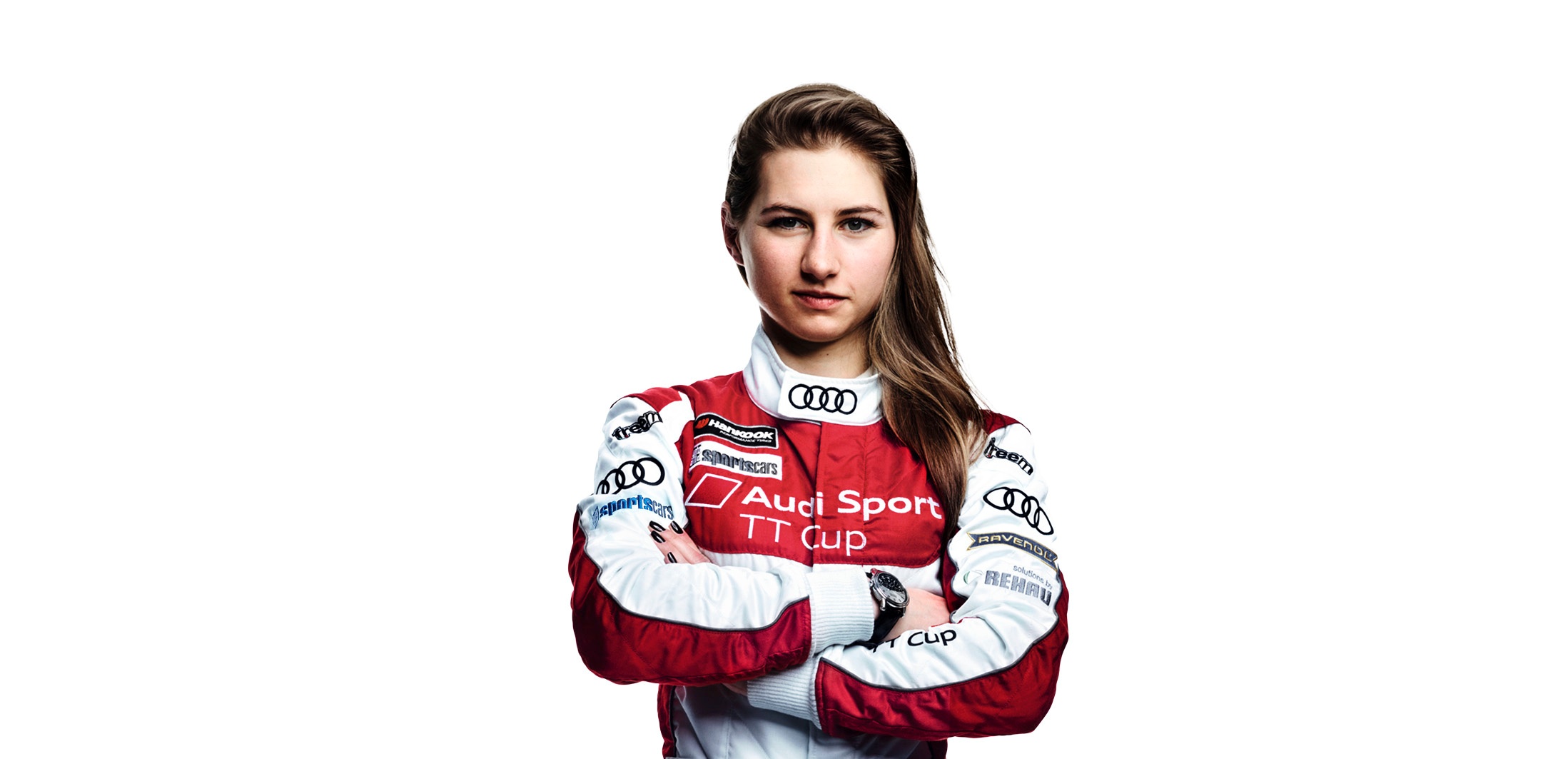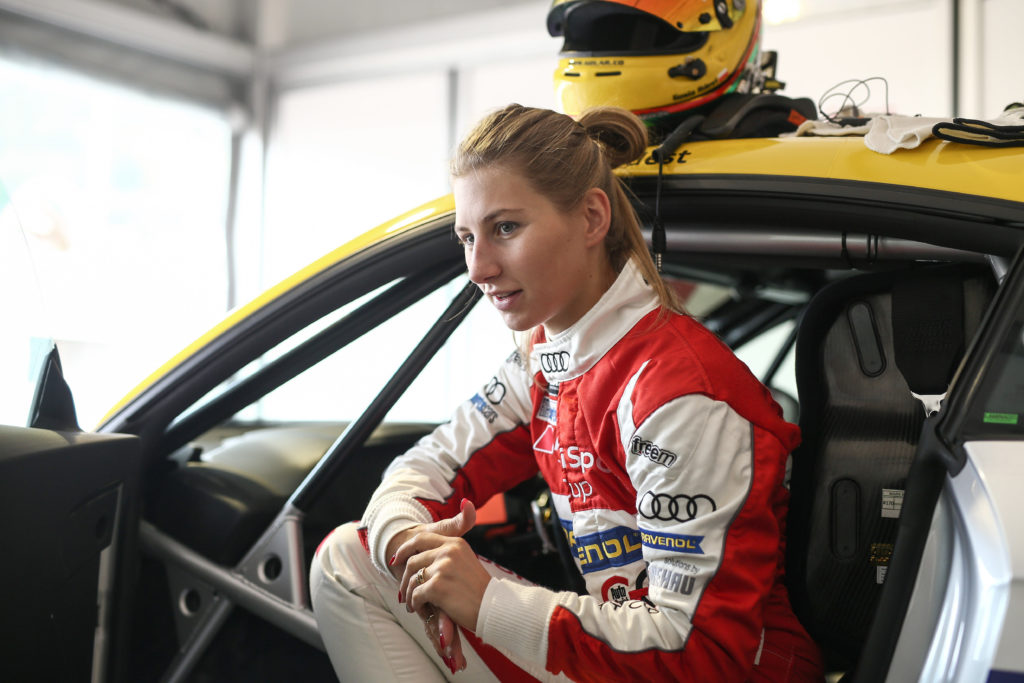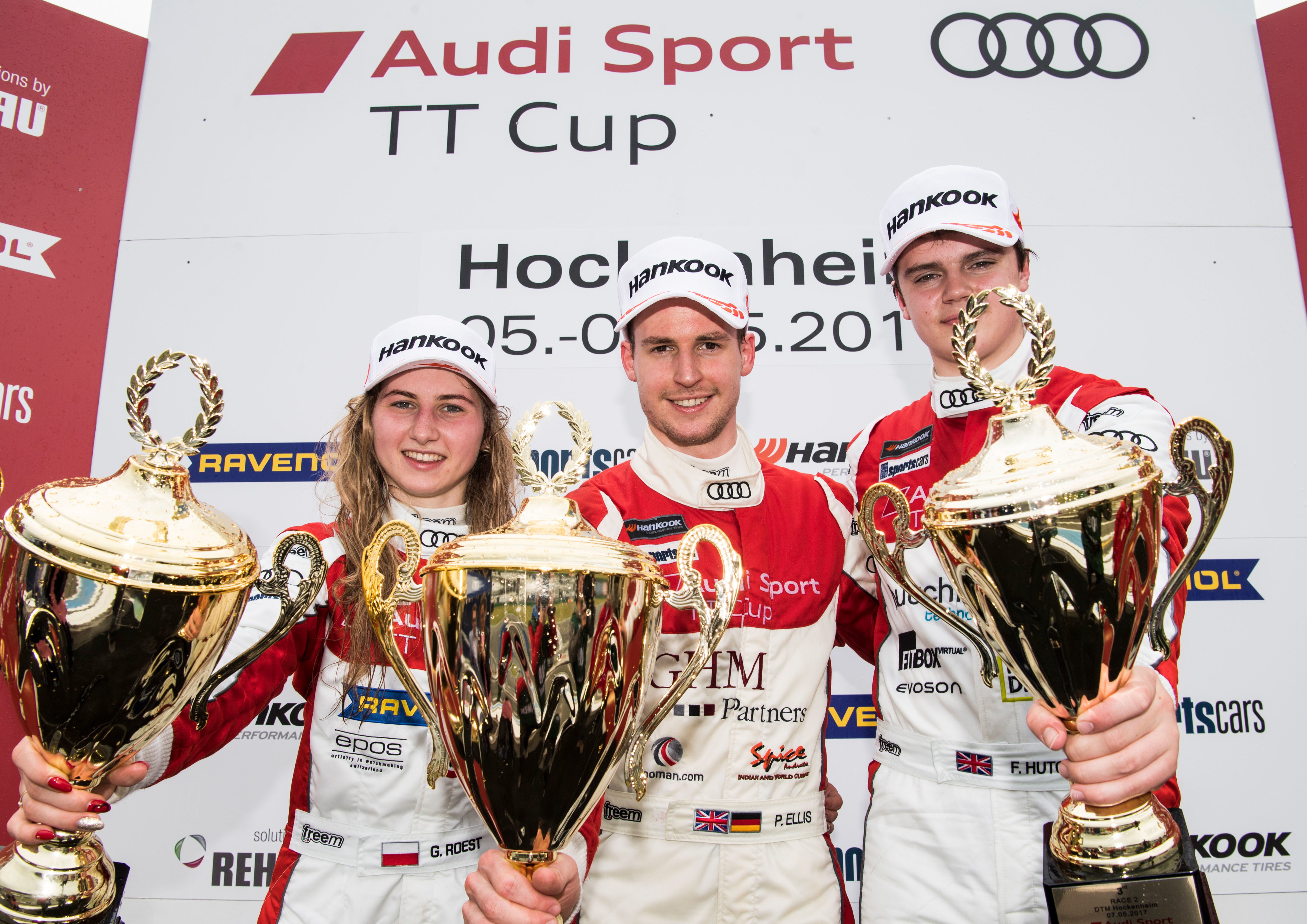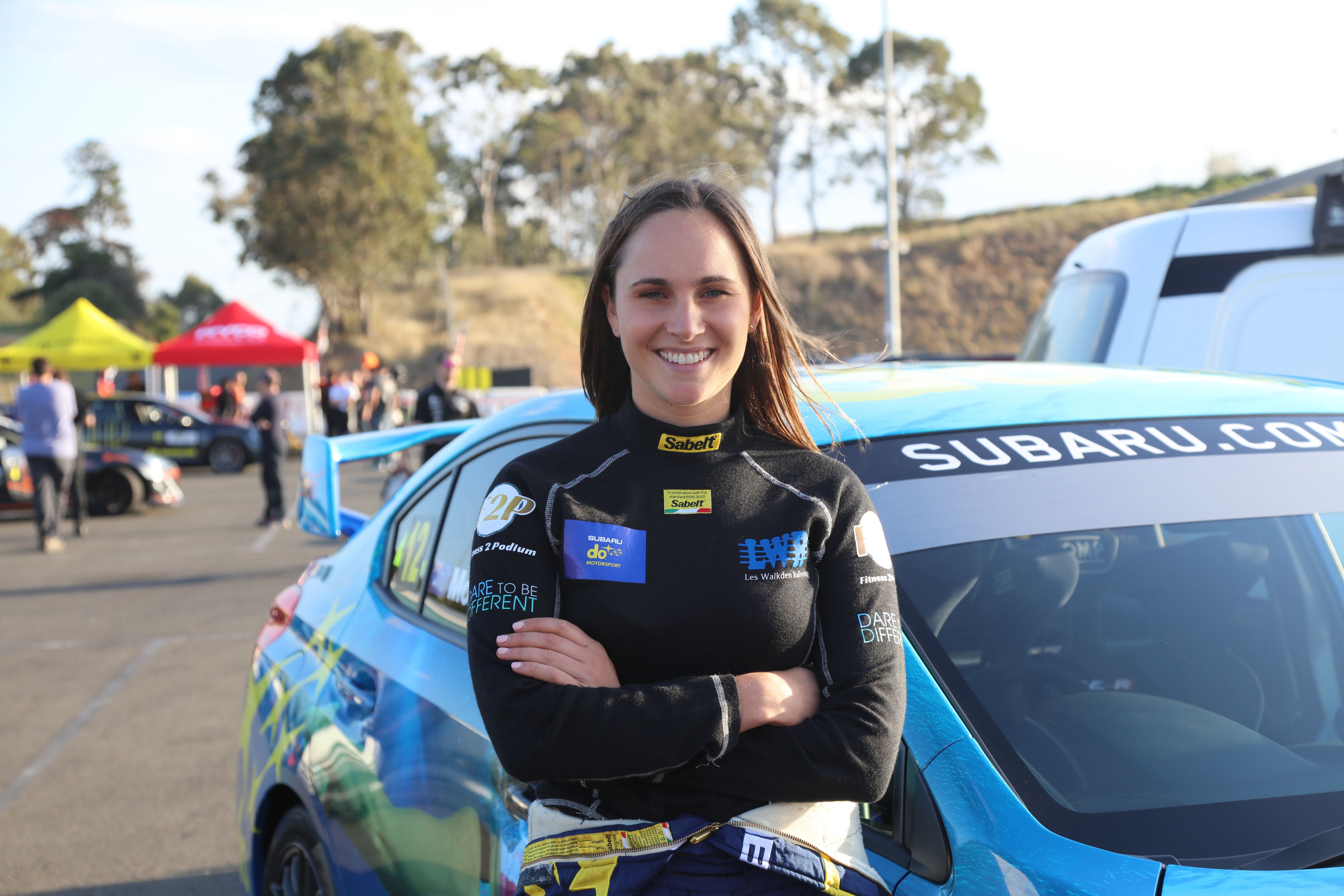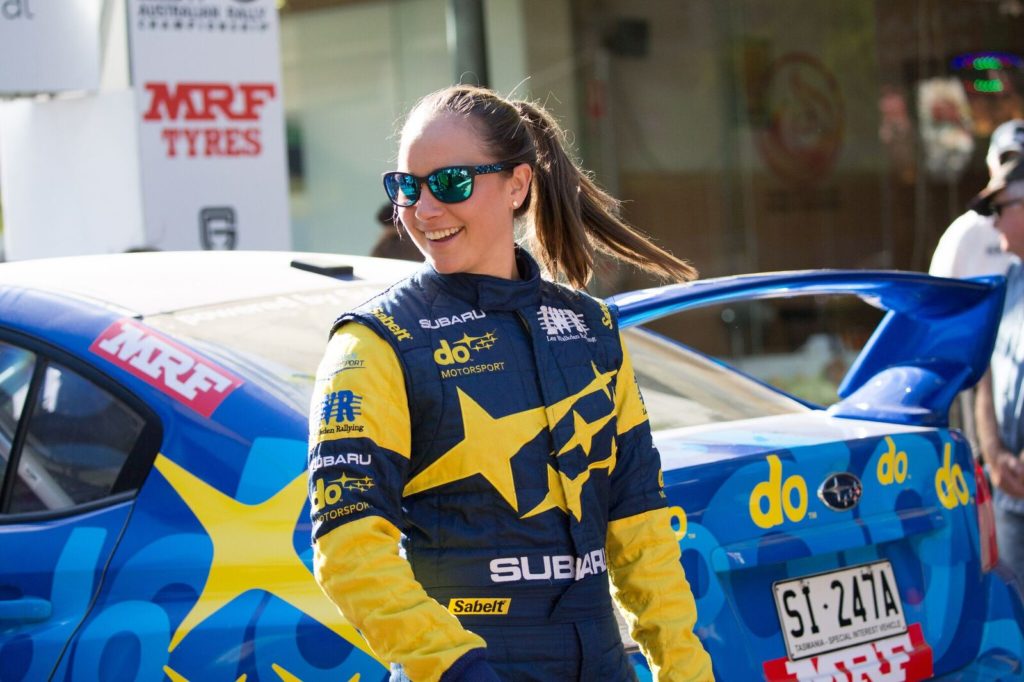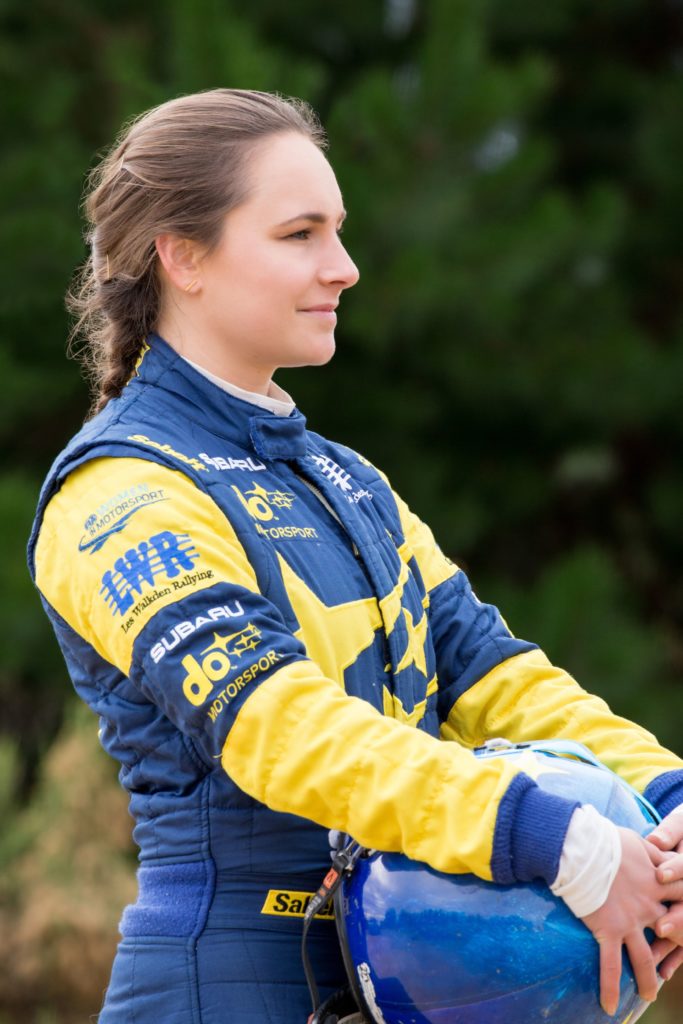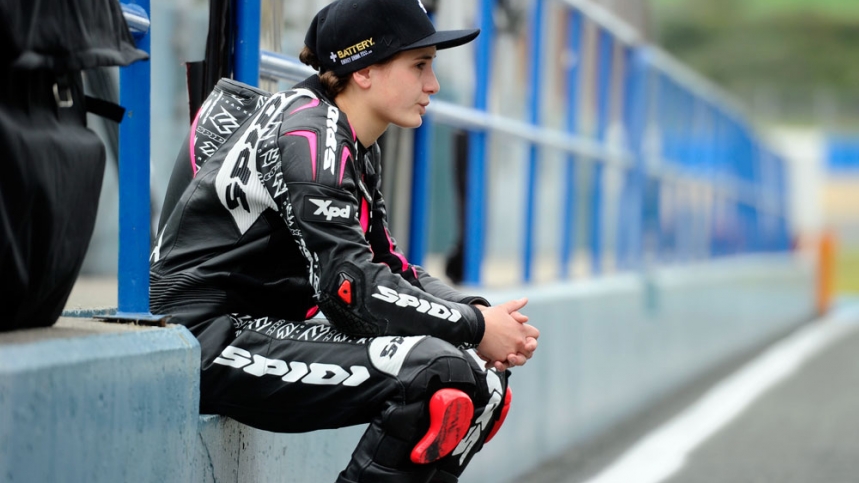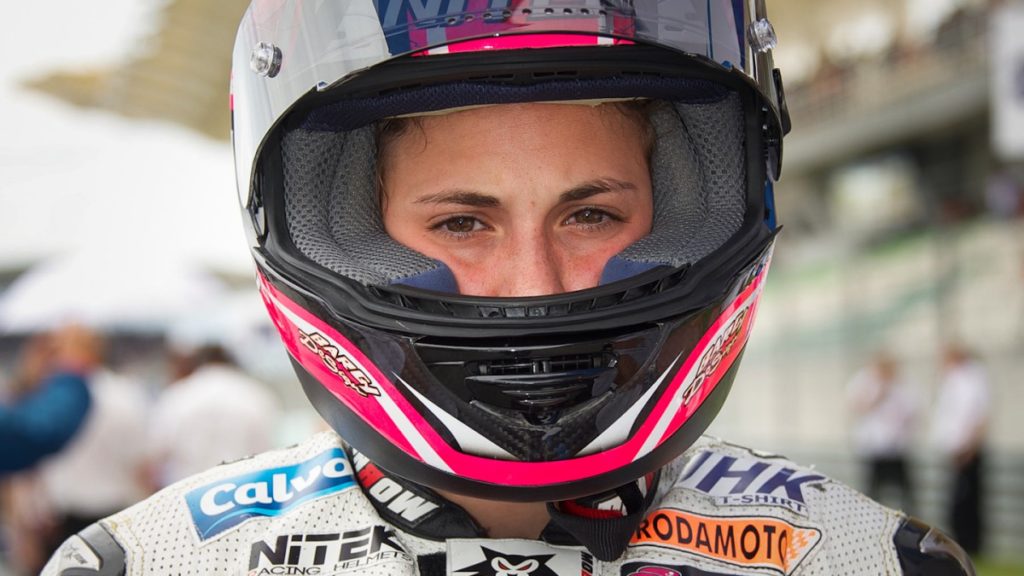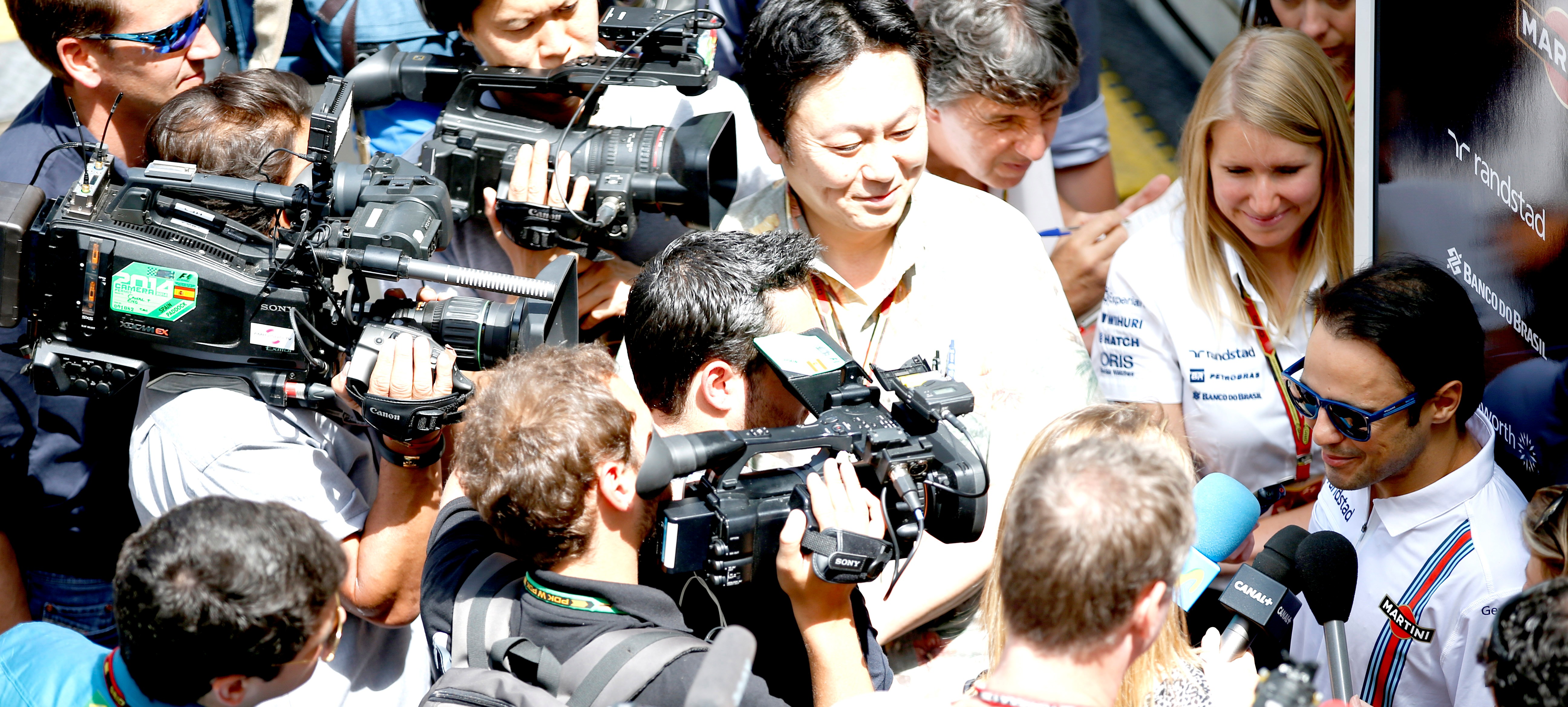In her role as Head of Communications at Williams Martini Racing, Sophie Ogg is a familiar face in the F1 paddock. In this interview she talks about working her way up through the motorsport ladder and what life is like in one of the fastest paced jobs in the world.
Georgia Beith: How did you get involved with working for Williams F1?
Sophie Ogg: Motorsport was always a passion and something I just wanted to be around. My first experience was a British Touring Car Championship race at Oulton park that my dad took me along to when I was about 12 years-old and I immediately caught the motorsport bug! I gained some work experience with a local race team, and then built contacts from there. I worked up through a number of race series including Formula BMW, Formula Ford, British GT, A1GP and WTCC before stepping into Formula One with Williams back in 2010.
GB: What does your role as Head of Communications entail?
SO: As Head of F1 Communications, I am responsible for creating and implementing a communications and digital strategy for our Formula One and Heritage operations to support the business aims of the Williams Group. I oversee a two press officers but also work with all the divisions across the company regarding F1 looking after internal and external F1 communications, social media platforms, our CSR programme, announcements, launch events and fan engagement. In a nutshell I take all the information from inside the team, and work out what and how best to communicate it to the fans and media. The role is extremely diverse and a 24-hour a day job, so the challenge is to remain proactive as well as being versatile enough to react to the changing climate both at track and away from it.
GB: What would your typical working day during a race weekend look like?
SO: At the track, race weekends are quite formulaic up to a point. We have a schedule which constantly evolves, social media to manage, news to monitor, media interviews to oversee and content to create and then during sessions I’ll be based in the garage. Whatever happens, it’s up to me to decide how we handle it from a communications point of view, whether it’s a good result or a bad one. It’s also great being able to work with the engineering team as well as the senior management to construct any statements. The main thing people notice in this role is the fast pace at which you need to operate, things change so fast from an accident or failure on track, to a last-minute driver change before qualifying, and all need to be managed accordingly in the moment.
GB: What is the most challenging aspect of your job?
SO: There are the obvious things like it being a 24/7 job, dealing with difficult situations or leaks in the media, but the toughest challenges are being reminded that it is a dangerous sport. Everyone involved knows the risks, but it doesn’t stop it being emotionally tough when things do go wrong. I’ve lost a number of friends over the years, Dan Wheldon and Henry Surtees to name a couple, and Suzuka 2014, having to inform our drivers about Jules’ crash following the race, and then us subsequently losing him, is something that stays with you. The support everyone gives each other in the paddock is like a family but times like that are really tough.
GB: What has been the highlight of your time working in Formula 1/motorsport?
SO: One of my favourite memories would be Pastors’ win in 2012, I had to ask someone where to go after the race as I had never recced what do when you win – it highlights the thing I love about racing – the fact that anything can happen! But I’m also really proud of the 40th anniversary fan event we put together at Silverstone last year. Putting together the whole plan for the 40th was fun, but hard work, and that event was the culmination of a crazy idea one day the year before, and a lot of work to pull it all together! It was also incredible to see the fan reaction, and to also be reminded of the goodwill and support Williams had from everyone both inside the paddock and outside. The number of well-known personalities and ex-F1 drivers and champions that turned up is testament to that!
GB: Have you always been a fan of motorsport? Was it always a goal of yours to work within motorsport?
SO: Motorsport was a passion and something I just wanted to be around. Ever since my dad took me to Oulton Park when I was 12. No one in my family was involved, but my nan knew someone who was involved in a local single-seater race team and so passed on a telephone number. I made the call and from that, I started washing wheels and helping out on events, basically doing anything just to be involved and learn more about the sport and make as many contacts as possible in the industry. From then it was never a question, motorsport was where I would always want to be.
GB: Was there ever a time in your motorsport career when you faced challenges or obstacles because of your gender?
SO: To be honest, the only real challenge I had was outside of motorsport. My friends and some of my teachers couldn’t understand my passion for motorsport and so didn’t understand that this was a serious thing I wanted to do. Careers advisers told me to get a more realistic career goal and friends would mock me for not wanting to go out on a Friday night because I was heading to a race track at 6am Saturday morning! Within the industry though, I have never faced any real issues. I think because I worked my way up from the bottom, and had a genuine interest and passion for engineering and racing, everyone I have come across has accepted me, trusted me, and treated me as an equal. When I first meet anyone new, many of them do appear to look at me like I am just another PR person who will be a pain and make their life difficult, but as soon as I’ve had just one conversation and told them what I am about, and why I am there, their opinions seem to change. I do think this is the case for men or women though, people will always find it easier to have more respect for people who have worked from the bottom and travelled the same path as them through motorsport ranks. I would like to think that I have earned my place.
GB: Do you feel life has changed for women in motorsport in recent years? How do you see it changing in the future?
SO: I think it is much easier for women now. When I started there were pretty much no women in the paddock, but I always felt at home in a man’s world because most of my best friends were male – mainly due to me having more in common with them as my favourite things were football and racing cars! But I can see it could be intimidating. These days there are a lot more women though and things are changing to encourage women to follow their passion whatever that may be. Programmes like Dare 2 Be Different are helping highlight all the various career paths as well. I think this will only continue in future. But I do believe that everyone should be encouraged to follow their passion, both men and women. Nothing should stop anyone following their dreams.
GB: As a female role model within motorsport, what advice would you give young girls apprehensive about pursuing a career in such a male dominated industry?
SO: Don’t let anyone tell you that you that you can’t do something. Don’t be intimidated and don’t try to be something you are not. Get experience, make contacts and be prepared to work from the bottom up. Motorsport is more than just a job, it’s a way of life, and so you need to love it to be prepared to work that hard for something I think. All the women I know who are successful in motorsport, from mechanics and engineers, to press officers and lawyers do it because they love their jobs and they don’t see themselves as being ‘different’ or doing something out of the ordinary in any way.
